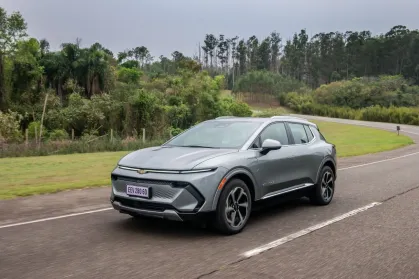In 2023, the landscape of personal transportation has evolved significantly, with electric vehicles (EVs), hybrids, and gas-powered cars competing for the top spot in our driveways. According to Bloomberg Green, electric vehicles are projected to account for 60% of global car sales by 2030. But in the here and now, how do these vehicle types stack up against each other in terms of cost, range, and sustainability? This article dives into the latest trends, offering you a comprehensive guide to making an informed choice for your next vehicle purchase.
Cost: Upfront and Long-Term Considerations
When considering a new vehicle, cost remains a pivotal factor. Here’s how EVs, hybrids, and gas vehicles compare in 2023:
Upfront Costs
- Electric Vehicles (EVs): Initially, EVs have a higher purchase price compared to gas vehicles. For instance, the Tesla Model 3 starts at around $40,000. However, government incentives and tax credits can significantly offset this cost, making models like the Nissan Leaf or Hyundai Kona Electric more affordable.
- Hybrids: These are often priced between gas and electric vehicles. The Toyota Prius, a popular choice, starts at around $25,000, offering a middle ground for those not entirely ready to go electric.
- Gas Cars: Generally, gas-powered cars have the lowest upfront cost. Entry-level models like the Ford Fiesta can be found for under $20,000.
Long-Term Savings
- EVs: Thanks to lower maintenance costs and cheaper electricity, EVs can save owners thousands over their lifespan. According to Electrek, charging an EV costs less than half of what you’d spend on gas.
- Hybrids: While hybrids also offer fuel savings, maintenance can be more expensive than pure EVs due to the complexity of having two powertrains.
- Gas Cars: Despite their lower purchase price, gas cars have higher operational costs, with fluctuating fuel prices and regular maintenance needs.
Range: Meeting Your Driving Needs
Range anxiety has long been a concern for potential EV buyers, but advancements in battery technology are changing the game.
Electric Vehicles (EVs)
- Range Improvements: Modern EVs boast impressive ranges. The Lucid Air, for example, can travel over 500 miles on a single charge, while the Tesla Model S offers around 405 miles.
- Charging Infrastructure: Charging stations are becoming more ubiquitous, with networks like Tesla’s Supercharger and Electrify America expanding rapidly. According to InsideEVs, there are over 100,000 charging points in the U.S. alone.
Hybrids
- Versatile Range: Hybrids provide a balance of electric and gas power. The Toyota Prius Prime can travel up to 25 miles on electric power alone before switching to gas, making it ideal for city commutes.
Gas Cars
- Unmatched Range: Gas vehicles still lead in range, with most able to travel 400-500 miles on a full tank, and refueling takes just minutes.
Sustainability: The Green Choice
Sustainability is a crucial factor for many when choosing a new vehicle.
Electric Vehicles (EVs)
- Zero Emissions: EVs produce no tailpipe emissions, significantly reducing carbon footprints. The International Energy Agency (IEA) reports that EVs are up to three times more efficient than gas vehicles.
- Renewable Energy: Charging with renewable energy sources, such as solar or wind, further enhances their sustainability.
Hybrids
- Reduced Emissions: Hybrids offer lower emissions than traditional gas cars, making them a more environmentally friendly option for those not ready to go fully electric.
Gas Cars
- Environmental Impact: Gas vehicles contribute significantly to pollution and greenhouse gases. However, advancements in fuel efficiency and cleaner technologies are slowly mitigating their impact.
Practical Tips for Choosing Your Next Vehicle
When deciding between an EV, hybrid, or gas car, consider the following:
- Assess Your Driving Habits: If most of your trips are short and within city limits, an EV or hybrid might be ideal. For long-distance travelers, a gas vehicle could still be the best choice.
-
Evaluate Charging Options: If you have access to home or workplace charging, an EV becomes more convenient. Otherwise, hybrids offer a compromise with their dual power sources.
-
Financial Incentives: Research available government incentives in your area. These can make EVs and hybrids more financially attractive.
-
Future-Proofing: Consider the increasing investments in EV technology and infrastructure. Owning an EV might align better with future trends.
Conclusion: Making an Informed Decision
In the battle of EVs vs hybrids vs gas cars, each has its merits and challenges. EVs lead in sustainability and long-term savings, hybrids offer a balanced approach, and gas vehicles excel in upfront affordability and range. As we look toward a future increasingly dominated by sustainable technologies, opting for an EV or hybrid might not only align with environmental goals but also prove financially prudent.
So, which vehicle will you choose? With continual advancements and increasing options, the choice is more exciting than ever. As the automotive world evolves, staying informed will ensure you make the best decision for your lifestyle and the planet. Keep an eye on emerging trends and innovations; the road ahead promises to be electrifying.
Whether you’re ready to embrace the electric revolution or prefer a gradual transition, the decision is yours to make. Share your thoughts in the comments below and let us know which vehicle you’re leaning toward!

